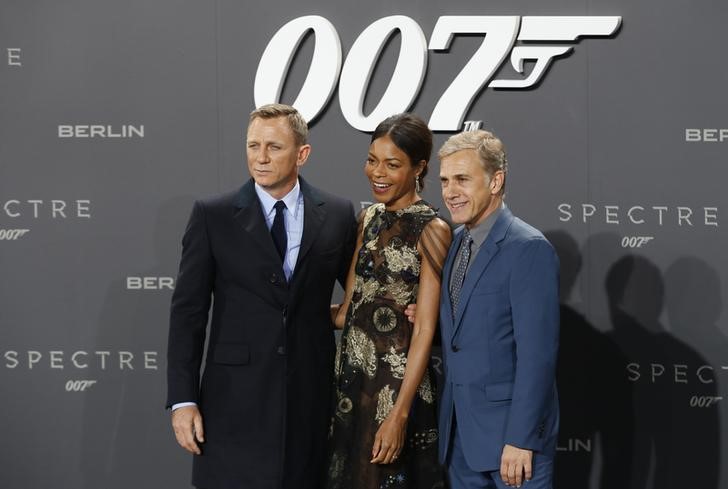Advent: Why knowing the ending makes the story better

Last week, like many diehard fans, I finally got to see the latest James Bond film Spectre. As the lights went down and I chomped through the popcorn, I felt myself being drawn into the drama as Daniel Craig once again (for the last time?) did battle with the forces of evil – uncovering cunning schemes with superior intelligence and fighting off the henchman with superior muscle power.
Although much cheaper, watching films at home on DVD never offers that all-absorbing quality of watching films on the big screen. But even during the film, I began to reflect on why these experiences are so absorbing. What am I there for – what do I expect to get out of the film? There is something visual; I enjoy films which have great camera work and offer something of a visual feast. There is something intellectual; it is great to watch a film with an intelligent plot, where the story has been thought through in intriguing or surprising ways.
But underneath all these, there is something emotional – visceral, even – in the way a film needs to engage, and this has two parts to it.
On the one hand, I need to know that the characters – in this case, James Bond and whoever his current love interest is – appear to be in genuine danger. If the film is to engage me emotionally, there needs to be a sense of real risk. A fantastic example of this is the 2012 film Argo, about the rescue of American hostages from Iran in 1980. Unlike Bond, the film is very low-key and the main characters hardly show much emotion. But the film crackles with tension because there is very real danger for the hostages – sometimes in unexpected ways – at every turn.
On the other hand, if a film is going to work I need some sort of security that the ending is going to turn out well, even if it's in a way I had not been able to anticipate. A few years ago, my wife Maggie and I watched the film Message in a Bottle. There were some emotionally demanding scenes and we expected there to be some sort of happy ending – but (spoiler alert!) it turned out to be genuinely tragic. I remember watching Titanic at Christmas time many years ago and it put a real dampener on the celebrations
The best and most satisfying films hold these things together. The genuine sense of risk or adventure allows me to fully engage with the story. But knowing that, somehow, the end will work out enables me to cope with it. I need both a narrative and an eschatology – an engrossing story and a satisfying ending. And that is why Christian eschatology is so important. Knowing how the story will end allows us fully to engage with the story as it is happening now.
Most 'secular' eschatologies are pessimistic in their outlook. Science tells us that we are heading for a 'big crunch', and ecology tells us that we are heading for an environmental catastrophe. Some popular strands of Christian eschatology say something similar, but they are largely misreading what the New Testament says. When Jesus talks of "wars and rumours of wars" in Matthew 24:6, he is not referring to a distant future event, but what is happening in the lifetime of his listeners ("this generation will not pass away until all these things have happened", Matthew 24:34). The four horsemen of the apocalypse (Revelation 6:1–8) are not about sometime future, end-times disaster, but about how the world is now. They are part of the problem to which Christian eschatological hope is the answer.
Far and away my favourite film is the epic trilogy that is Peter Jackson's rendering of J R R Tolkein's The Lord of the Rings. One of the most moving moments in the trilogy comes in the third film. All seems lost. Minas Tirith is under siege; the walls have been breached; orcs are running amok, killing all in their path. The world of men is about to fall. In a brief pause in the fighting, Pippin the hobbit and Gandalf the wizard find themselves on a terrace of the city with a few moments to reflect.
Pippin: I didn't think it would end this way
Gandalf: End? No, the journey does not end here. Death is just another path, one that we all must take. The grey rain curtain of this world rolls back, and all turns to silver glass. And then you see it.
Pippin: What, Gandalf? See what?
Gandalf: White shores...and beyond, a far green country under a swift sunrise.
Pippin: Well, that isn't so bad.
Gandalf: No. No, it isn't.
With hope renewed and vision rekindled, they plunge once again into the fray of battle – and very soon the tide has turned.
As Advent approaches once more, we need to understand the hope that is held out in the prospect of Jesus' return. As we understand that more fully, it neither offers an escape from the world nor a message of gloom for the world. Instead, it gives us the security to engage more fully with the story of the world – including the suffering and tribulation it is now experiencing – so that we can be agents of transformation in the world.
Rev Dr Ian Paul is Honorary Assistant Professor at the University of Nottingham and is currently writing the new Tyndale Commentary on the Book of Revelation. He blogs at www.psephizo.com











